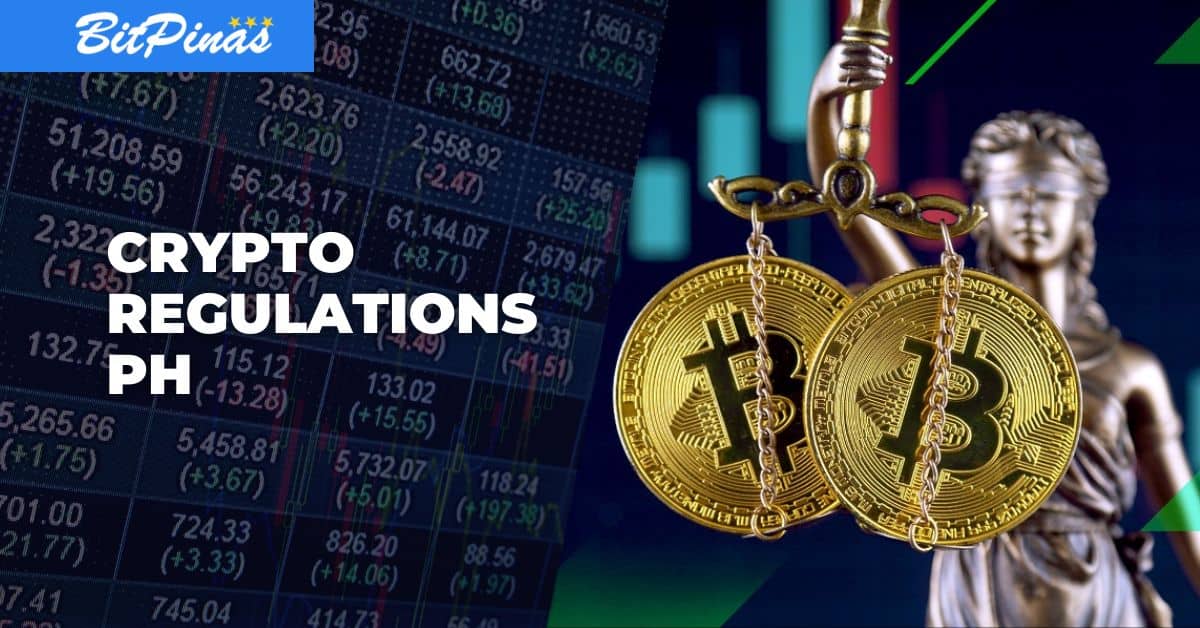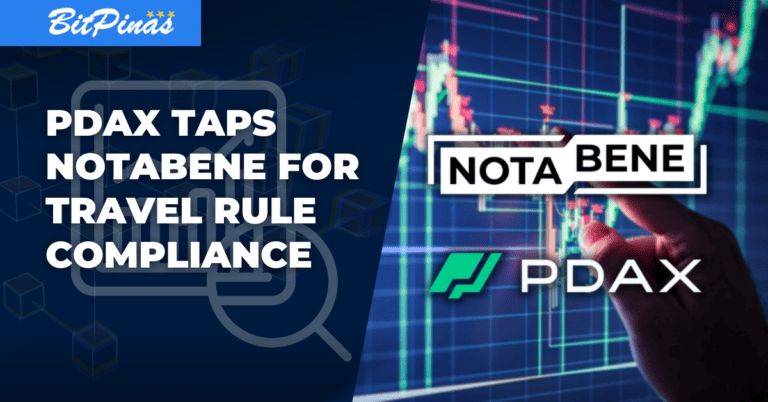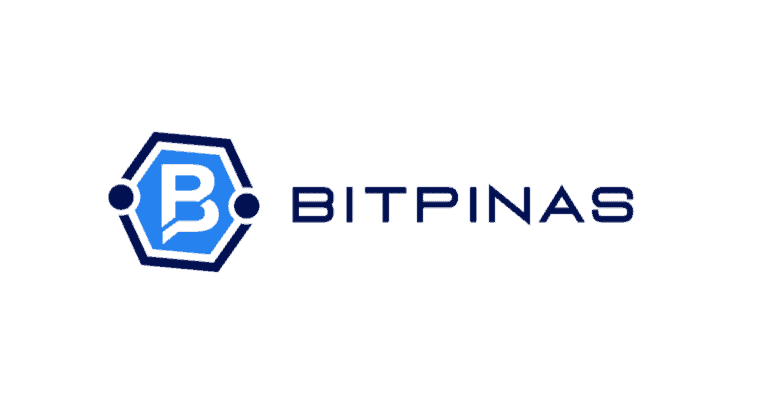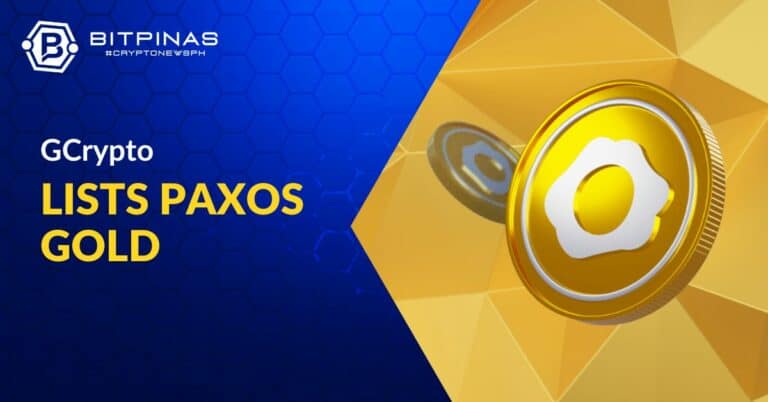List of Seven Notable Crypto Regulations in the Philippines
Stay informed about the evolving regulatory landscape of the cryptocurrency and digital asset market in the Philippines.

Subscribe to our newsletter!
Editing by Nathaniel Cajuday
- To cater to the growing cryptocurrency industry in the country, the regulators have implemented rules and guidelines to oversee the market.
- The article also discussed the impact of these crypto-related regulations on the Philippine market.
As the cryptocurrency market continues to evolve and gain traction worldwide, government authorities and regulatory bodies are grappling with the need to establish frameworks to govern this emerging sector. And the Philippines, with its growing interest in cryptocurrencies, has not been exempt from this global trend.
In this article, BitPinas discusses the top seven notable Philippine regulations that affect the country’s crypto-related market.
Virtual Asset Service Providers (BSP)
The Virtual Asset Service Providers (VASP) license allows entities to legally facilitate the exchange between virtual assets and fiat currency, virtual asset to virtual asset, and custody or transfer of virtual assets.
Formerly known as the guidelines for virtual currency exchange (VCE), the Bangko Sentral ng Pilipinas (BSP) has recently revised it in 2021 to align with the regulations and recommendations set forth by the Financial Action Task Force (FATF), an international body combating money laundering.
In its updated Guidelines for Virtual Asset Service Providers, the BSP acknowledged the transformative potential of virtual assets (VA) in revolutionizing financial services by enabling faster, more affordable fund transfers and facilitating financial inclusion.
Accordingly, the BSP also emphasizes the risks associated with factors such as increased anonymity, rapid transaction speeds, price volatility, and cybersecurity vulnerabilities. (Read more: Philippines Guidelines on Virtual Asset Service Providers (VASPs))
However, in August 2022, the central bank announced a temporary halt on approving new VASPs for a period of three years, effective September 1, 2022. Companies will not be able to apply for a VASP license. The decision aims to facilitate a thorough review of the existing virtual asset market in the Philippines. (Read more: Insights on BSP Guidelines for Virtual Asset Service Providers by Atty. Rafael Padilla)
Impact:
The existence of a VASP license in the country provides a regulated framework for facilitating the exchange and custody of virtual assets, ensuring transparency and compliance. The BSP’s recognition of the transformative potential of virtual assets highlights their ability to revolutionize financial services by enabling faster and more affordable fund transfers and promoting financial inclusion.
Additionally, the VASP license encourages financial innovation and technological advancements, fostering a forward-thinking approach.
Precursor on Virtual Currencies (BSP)
Before VASP existed, the central bank issued BSP Circular No. 944 on February 6, 2017. This was to further address the growing industry of digital currencies in the country at that time.
The circular set forth guidelines for VCEs, recognizing their potential risks and the need for appropriate regulatory measures. The circular defined virtual currency as “any type of digital unit that is used as a medium of exchange or a form of digitally stored value.”
Further, it required VCEs to register with the BSP and comply with certain regulatory obligations, including implementing risk management systems, conducting customer due diligence, and reporting suspicious transactions.
Impact:
Aimed to promote the integrity and stability of the Philippine financial system while ensuring consumer protection and mitigating the risks associated with virtual currencies. By providing a regulatory framework for virtual currency exchanges, BSP Circular No. 944 contributes to the responsible and secure development of the virtual currency industry in the Philippines.
One of the positive impacts of the regulation of virtual currency exchanges in the Philippines is that the circular focuses on enhancing consumer protection by requiring exchanges to implement risk management systems and conduct customer due diligence. This promotes transparency, safeguards users against fraud and money laundering, and ensures a safer environment for virtual currency transactions.
Additionally, the circular contributes to the integrity of the financial system by subjecting virtual currency exchanges to registration and regulatory obligations, thereby preventing illicit activities and protecting the overall stability of the financial sector. The guidelines provide regulatory clarity and certainty for virtual currency exchanges, reducing ambiguity and fostering a more stable and trustworthy environment for businesses and consumers alike.
Moreover, the circular also addresses the risks associated with virtual currencies, such as price volatility and cybersecurity vulnerabilities, by implementing measures to mitigate these risks and protect users and the financial system.
Further, the circular recognizes the potential of virtual currencies to drive innovation and promote financial inclusion, encouraging responsible innovation within the regulatory framework.
Guidelines on Initial Coin Offerings (SEC)
An Initial Coin Offering (ICO) in the Philippines refers to a fundraising method utilized by cryptocurrency startups or projects to raise capital by offering digital tokens or coins to investors or contributors.
Similar to an Initial Public Offering (IPO) in traditional finance, an ICO allows projects to secure funding for their development, operations, or the creation of a new cryptocurrency. Investors purchase these digital tokens or coins with established cryptocurrencies like Bitcoin or Ethereum, or sometimes with fiat currencies, in exchange for a share in the project or the expectation of future returns.
ICOs in the Philippines are subject to regulations imposed by the Securities and Exchange Commission (SEC) to protect investors and ensure compliance with securities laws. The first draft of the ICO guidelines was released in August 2018. Then, in 2019, the Commission stated that the guidelines for the ICO had entered their final review.
This regulation is set to provide transparency, prevent fraudulent activities, and promote a secure investment environment within the country’s cryptocurrency ecosystem.
Impact:
The SEC’s guidelines on ICOs in the Philippines have had a positive impact on the cryptocurrency landscape as it has been implemented to safeguard investors and promote transparency within the ICO market.
By imposing regulations and disclosure requirements on ICO issuers, the guidelines promote accountability by ensuring that issuers provide comprehensive information about their projects, team members, and use of funds during the ICO phase.
The guidelines also contribute to legitimizing the industry and building trust as it mitigate risks associated with money laundering and other illicit activities through the implementation of know-your-customer (KYC) and anti-money laundering (AML) measures.
Additionally, the guidelines foster innovation by providing a framework for legitimate ICO projects to thrive.
Overall, the SEC guidelines on ICOs in the Philippines created a more transparent, secure, and regulated environment for investors while supporting the growth and development of the cryptocurrency industry in the country.
Bataan Charter (R.A. 11453)
On August 30, 2019, former President Rodrigo Duterte signed the R.A. 11453, which bestowed the Authority of the Freeport Area of Bataan (AFAB) with the authority “to act as an offshore financial center” specializing in cryptocurrency mining.
The R.A. 11453, also known as the “Freeport Area of Bataan Act of 2019,” grants the AFAB the power and jurisdiction to establish and operate a freeport zone in Bataan province that is authorized to engage in various economic activities within the freeport, including cryptocurrency mining, to promote economic growth and attract investments to the area.
Impact:
Accordingly, the law promotes economic development by attracting investment, creating job opportunities, and generating revenue for the region. It also encourages technological advancement and innovation by fostering the adoption and utilization of advanced technologies related to cryptocurrencies and blockchain.
Additionally, the law aims to attract both local and foreign investors, leading to increased investments, infrastructure development, and a more competitive business environment.
Moreover, the establishment of cryptocurrency mining operations within the Freeport Area of Bataan can create employment opportunities, reduce unemployment rates, and improve the standard of living for local residents.
Lastly, the presence of such operations can contribute to the development of technological knowledge and expertise, enhancing the region’s capabilities in the digital economy.
In line with this, the province of Bataan has also been actively trying to integrate blockchain technology into its operations.
In January, the provincial government collaborated with nChain to establish a digital platform that aims to streamline government services by improving existing systems and procedures. This initiative seeks to enhance efficiency and simplify processes in the province.
Furthermore, in October 2022, Bataan hosted the Global Blockchain Summit (GBS), which served as a platform for industry leaders and experts to convene and discuss the advancements and potential of blockchain technology. Additionally, Binance CEO Changpeng “CZ” Zhao visited the province to explore potential partnerships with the local government unit. These developments reflect Bataan’s growing interest in leveraging blockchain technology to enhance governance and promote innovation in the region.
Rules for Digital Asset Exchanges (SEC)
Currently, the final regulatory framework of the Securities and Exchange Commission’s rules for digital asset offerings (DAO) and digital asset exchanges (DAX) has yet to be publicly released.
According to SEC Commissioner Kelvin Lester Lee, the Commission’s framework for cryptocurrencies to further provide protection and security to investors in the country was supposedly released in 2022 but has been halted due to the collapse of the FTX exchange, which broke out in November. However, he assured that there is a possibility of getting these rules implemented in digital asset offices and exchanges within this year, 2023.
In 2019, the SEC released the draft Rules on Digital Asset Exchange, which mentioned the definition of digital asset exchanges, licensing requirements, capitalization requirements, operational guidelines, and investor protection measures.
In 2021, following the Commission’s commitment to implementing rules on digital assets, it formally launched the PhiFintech Innovation Office (PIO), which aims to focus on the regulation of the use of fintech in the Philippines.
Read Atty. Rafael Padilla’s position paper about this rule here.
Impact:
This set of rules aims to provide protection and security to investors in the country by establishing regulations and guidelines specifically designed for digital asset exchanges. By implementing it, investors can have more confidence in the market, knowing that their interests are safeguarded.
The regulatory framework created by it brings clarity and structure to the operations of digital asset exchanges, promoting a transparent and accountable environment for trading digital assets. It also set licensing requirements, capitalization requirements, and operational guidelines for exchanges, ensuring compliance and promoting professionalism and accountability in the industry.
Furthermore, the SEC’s establishment of the PhiFintech Innovation Office (PIO) showcases their commitment to regulating fintech, including digital assets, and fostering innovation while maintaining regulatory compliance. These rules contribute to the development of a regulated and secure digital asset ecosystem in the Philippines, fostering responsible growth and protecting investors.
Digital Asset Bill
Senate Bill 1041, also known as the “Digital Asset Act of 2019,” was introduced by Senator Imee Marcos, aiming to bring clarity and institutionalize regulations for digital assets in the Philippines.
The bill sought to define and standardize the rules surrounding digital assets while recognizing their significance in the country’s financial landscape. While it does not directly regulate digital assets, it provides a framework for licensing and operating e-money, virtual asset exchanges, and virtual asset businesses.
Read the key takeaways from BitPinas EIC Michael Mislos about the bill here.
Under the proposed bill, the Bangko Sentral ng Pilipinas (BSP) would take the lead in overseeing e-money operations. It would establish policies to monitor e-money and e-money issuers, including the issuance of rules and the determination of fees. The BSP would become the sole entity authorized to issue e-money licenses, and licensees would also need to register with the Anti-Money Laundering Council Secretariat.
On the other hand, the bill designates the Securities and Exchange Commission (SEC) as the lead agency for virtual assets. Virtual assets, encompassing virtual currencies and virtual tokens, would fall under the SEC’s jurisdiction for the offering, issuance, and operation of virtual asset businesses. The SEC would have the authority to establish policies and rules governing virtual assets and disclose information related to any violations.
Impact:
If passed into law, it could have several positive impacts on the regulation of digital assets in the Philippines.
With the bill aiming to provide regulatory clarity by defining digital assets, e-money, and virtual asset businesses, it could offer clearer guidelines for their operation; this clarity would reduce confusion and uncertainty, providing a solid regulatory framework for businesses and investors to operate within.
Additionally, designating the SEC as the lead agency for virtual assets would enhance transparency and reduce the risk of fraudulent activities, promoting a safer investment environment. Standardizing licensing requirements and procedures for digital asset exchanges and businesses would encourage industry standardization, fostering stability and consistency within the sector.
Moreover, by coordinating with the BSP for e-money operations, facilitating effective oversight and streamlined regulatory processes would be a lot easier.
Securities Regulation Code (SEC)
The Securities and Regulation Code (SRC) grants the Commission the authority and responsibilities to oversee and regulate exchanges, clearing agencies, and self-regulatory organizations (SROs).
Its objective is to foster national economic development and ensure competitive market pricing, mandating the SEC to establish rules and regulations for the registration and licensing of various trading markets, including those for innovative securities, securities of small and medium-sized enterprises, growth enterprises, venture enterprises, and technology-based ventures.
This provision also aims to facilitate the growth and development of these sectors and promote a regulatory environment conducive to innovation and market expansion.
Meanwhile, about cryptocurrency and digital asset regulation, the SRC is often utilized to shut down investment scams that are considered investment solicitations and to flag the unauthorized sale of digital assets as securities.
Read how the SEC has explained the accountabilities of influencers in scam projects here.
Impact:
Considering that there are still no definite rules and regulations addressing digital assets in the Philippines, the existence of the SRC helps the regulators to still oversee the digital industry and regulate entities in accordance with the law.
In the context of the crypto industry, the positive impact of the SRC lies in its ability to provide a regulatory framework for exchanges, clearing agencies, and self-regulatory organizations (SROs) involved in digital asset trading.
The establishment of rules and regulations for the registration and licensing of various trading markets, including those specific to cryptocurrencies and digital assets, also helps create a transparent and secure environment for investors and market participants. This promotes trust and confidence in the crypto industry, fostering its growth and development.
This article is published on BitPinas: What are the Seven Notable Crypto-Related Regulations in PH & Their Impact on the Community?
Disclaimer: BitPinas articles and its external content are not financial advice. The team serves to deliver independent, unbiased news to provide information for Philippine-crypto and beyond.




